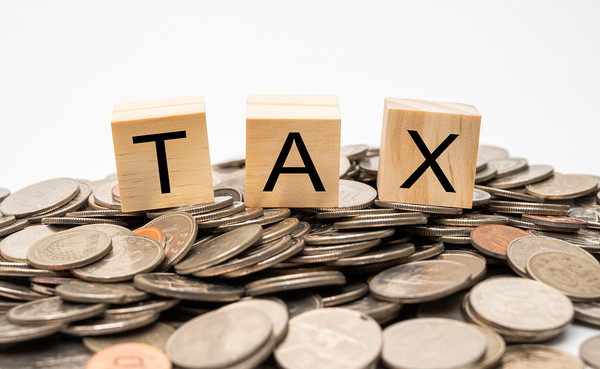If you’re working or starting a business in South Korea, you’ll notice various deductions every month in your payslip. These typically include Korean taxes like income tax and resident tax, along with the “four major insurances”—National Pension, Health Insurance, Employment Insurance, and Industrial Accident Compensation Insurance. For foreigners, it’s natural to wonder, “Why are there so many deductions?” or “Where does all this money go?”
However, with a bit of understanding, it becomes clear how these taxes and insurances play a crucial role in Korean society and why payment is mandatory. Taxes, after all, are essential not only in Korea but in any country for stable governance. Similarly, the four types of insurance serve as a vital safety net in unforeseen circumstances. In this article, we’ll break down the basics of income tax, resident tax, and the four major social insurances you’ll encounter while living and working in Korea.
Income Tax: Where There’s Income, There’s Tax
The most fundamental tax is income tax. In Korea, income is taxed across various categories including earned income, business income, and financial income like interest or dividends. For most office workers, monthly salaries or annual wages fall under “earned income.” Companies calculate the income tax due on payday, deduct it at the source (withholding tax), and submit it to the National Tax Service.
Korean income tax is based on a progressive tax rate, meaning the more you earn, the higher the tax rate. Rates start at around 6% and can go as high as 45% depending on your annual taxable income. However, actual tax liability may be reduced through various deductions and tax credits. Foreigners earning income in Korea are also subject to Korean income tax laws, though double taxation may be avoided or reduced if there is a tax treaty in place between Korea and their home country.

Resident Tax: A Small Portion for Local Governments
Resident tax is calculated as a percentage of your income tax payable. In Korea, it’s generally about 10% of your income tax amount. For example, if 100,000 KRW is deducted as income tax in a month, an additional 10,000 KRW would be taken out as resident tax.
This tax is collected by local municipal governments (cities, counties, or districts) and is used to fund regional welfare and city infrastructure. On your payslip, resident tax may be listed separately or bundled with income tax. For most employees, this tax is automatically deducted at source, so there’s usually no need for concern or additional action.
Overview of the Four Major Insurances: National Pension, Health Insurance, Employment Insurance, and Industrial Accident Insurance
While income tax and resident tax are classified as taxes paid to the central or local government, the four major insurances are essentially types of social insurance. To protect workers and strengthen Korea’s social safety net, participation in the four major insurances is mandated by law. Thus, if you’re employed and receive a monthly salary, a portion of it will be automatically deducted for these insurances.
National Pension: Preparing for Old Age
The National Pension is Korea’s public retirement system. If you contribute for a certain period (typically 10 years or more), you’ll receive monthly pension payments after retirement. For employees, about 9% of their monthly salary is contributed, with the cost split equally between employee and employer. These funds are pooled and invested to generate returns used for future pension obligations.
Foreign employees living in Korea are generally required to enroll in the National Pension. If Korea has a bilateral Social Security Agreement with your home country, your contribution periods may be combined, or you may be eligible for a lump-sum refund when returning home based on specific conditions. These details vary by country, so it’s best to check based on your nationality.
Health Insurance: Reducing Medical Expenses
Korea’s national health insurance system significantly lowers medical expenses when visiting hospitals or pharmacies. Employees pay approximately 7–8% of their salary as premiums, split evenly between employee and employer. As a result, out-of-pocket costs for medical visits, hospitalizations, and prescriptions are greatly reduced. The insurance is also extremely helpful in the event of serious illness or cancer care.
Foreigners working full-time and living in Korea long-term are automatically enrolled in health insurance. In the past, it wasn’t mandatory or easy for foreigners to enroll in the regional plan, but now long-term residents are required to enroll after a certain stay duration. Once registered, a health insurance card allows access to discounted healthcare services at hospitals and clinics.
Employment Insurance: Support for Unemployment, Maternity, and Parental Leave
Employment insurance is a social insurance that provides support when you can’t work due to unemployment, childbirth, or childcare responsibilities. A major benefit is the unemployment allowance (or job-seeking benefit), which provides financial support when you lose your job involuntarily and actively search for a new one. It also covers benefits during maternity leave and parental leave.
If a foreign employee is enrolled in employment insurance, they may become eligible for these benefits if certain conditions (minimum contribution period, visa status, reason for termination) are met. However, if your visa expires during your benefits eligibility period, complications may arise—so it helps to have a long-term visa. Premiums are shared between employee and employer and are relatively low compared to other insurance types.
Industrial Accident Compensation Insurance: Coverage for Work-Related Accidents
Industrial accident insurance provides compensation for medical expenses, disability, or lost wages if an employee is injured, falls ill, or suffers an accident while performing job duties. This is the only insurance among the four that is fully paid for by the employer, with no deductions made from employees’ wages.
In Korea, this insurance covers all industries—not just high-risk jobs like construction—so even office workers are eligible. If a work accident occurs, employees (including foreigners) can receive aid from the Korea Workers’ Compensation and Welfare Service. This insurance is a critical safeguard for employees’ well-being and medical cost relief.
Year-End Tax Settlement: Refunding Excess Deductions
Although income tax is deducted monthly, the final amount owed is determined during the year-end tax settlement. In this process, employers collect supporting documentation (medical bills, tuition fees, charitable donations, insurance premiums, etc.) from employees and report them to the National Tax Service. A recalculation is made, and in January or February of the following year, employees may either receive a refund or pay additional tax. Foreign employees go through the same process and can enjoy tax credits, for example through donation deductions, if they qualify.
What if you resign mid-year or switch to another company? In such cases, a mid-year settlement or filing of a comprehensive income tax return in May of the following year is required. If you’re planning to leave Korea right after resignation, it’s advisable to settle your tax affairs before departure. Understanding the year-end settlement system can reduce your tax burden, so organizing receipts and records in advance is beneficial.
Case Study: How German Employee Mr. U Experienced Korean Taxes and Social Insurances
Mr. U, a German national working at a Korean IT startup, was puzzled every time he saw his payslip. “Why is so much deducted—income tax, resident tax, National Pension, Health Insurance, Employment Insurance?” he wondered. After asking colleagues, he learned that these deductions were all legally mandated taxes and insurance contributions. Curious, he asked his HR representative for a detailed explanation and realized that these weren’t just deductions—they were protective systems for his future.
Thanks to health insurance, he could significantly reduce medical expenses. Employment insurance offered benefits like unemployment assistance and parental leave. The National Pension was a solid resource for retirement planning. During the year-end tax settlement, he submitted receipts for his medical bills in Korea and received a small refund. Though unfamiliar, the structured system gave him peace of mind.
Conclusion: Korean Taxes and Social Insurances Provide Stability for Life in Korea
Income tax, resident tax, and the four major insurances apply to everyone in Korea—including foreigners. At first, it might feel frustrating to see large deductions from your salary, but these systems are important pillars in Korean society and function as personal safety nets. In the face of unexpected events like illness, accidents, or job loss, health insurance, employment insurance, and accident insurance can be powerful sources of support. The National Pension ensures a stable retirement.
Accurate tax payments also contribute to maintaining Korea’s public services and secure your status as a legal resident and worker. Most importantly, once you understand these systems, you’ll find tax return filing, visa extensions, or even handling taxes when moving overseas much easier. If you plan to build a long-term career in Korea, understanding and utilizing these systems effectively is essential.
Taxes might feel burdensome, but when paid with knowledge and foresight, they provide you with protection and assurance as a member of society—regardless of your nationality. Don’t hesitate to seek help from your HR department or a tax professional to better understand Korea’s system. Doing so can make your life in Korea much more stable and comfortable.


WeBring Service : Provides personalized services to foreigners living in Korea
Exclusive offer: Introducing foreign car rental in Korea, WeBring-SoCar

